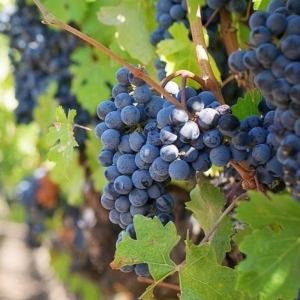We have new, scientific confirmation that wine is associated with lower risk of heart disease. Spanish researchers say their findings, “should help to place wine […] in its rightful place as an element of the Mediterranean diet…”
 Foods commonly found in the celebrated Mediterranean diet. Wait… Could
Foods commonly found in the celebrated Mediterranean diet. Wait… Could
that be a bottle of Wine, hiding there, at the back, beside the parsley?
Yet another breakthrough science story. And one that will be particularly welcomed by many rev-ellers, coming as it does just on the doorstep the year-end Holidays…
Hard evidence
Until now, learned studies looking for a link between consumption and heart health have proven scientifically ‘inconclusive’.
Dr. Ramon Estruch the University of Barcelona (Spain) explains: “Part of this debate is due to con-flicting results of studies that have pointed to a protective effect of wine, while others have found no such effect.”
“Epidemiological studies assessing the role of wine in the rate of cardiovascular events are often based on self-reported information on wine consumption,” Estruch adds. Self-reporting of drinking habits has drawbacks that can skew study results. “These are reliable data, but subject to meas-urement errors due to inaccurate recall or biased perceptions about the social desirability of drinking alcoholic beverages,”
But now, Estruch and his team have found conclusive proof of a positive link.
What they did
Estruch and his people based their findings on measurement of a bio-marker for wine consumption – tartaric acid, abundant in grapes but not found in such quantities in other foods. Using this method of tracking wine consumption, the team cancelled out out any potential effects of ‘erroneous self-reporting’ of daily eating habits.
In total, 1,232 participants were evaluated, including 685 who had suffered a cardiovascular event (cardiovascular death, myocardial infarction, stroke or heart failure), and 625 who were randomly selected.
What they found
‘Light wine consumption’ (between one glass per week and less than half a glass per day) reduces the risk of having a cardiovascular complication by 38 percent. But this reduction reaches 50 percent when consumption is moderate (between half a glass and one glass per day).
Surprisingly, researchers also found that, when consumption exceeds one drink per day, the pro-tective effect disappears.
The takeaway
According to the study’s conclusions: “There is no doubt that excessive alcohol consumption has serious health consequences. However, the effects of moderate and responsible wine consumption are still the subject of debate in the scientific community.”
No argument there. Alcohol-related health issues are estimated to have affected 28.9 million Amer-icans aged 12 and older (10.2 percent in this age group) during 2023, the last full year for which numbers are available.
But the study report also states, triumphantly: “The results of this study and others should help to place moderate wine consumption in its rightful place as an element of the Mediterranean diet, considered to be the healthiest in the world.”
My take
I’m not surprised at all to find a Spanish study so enthusiastically trumpeting positive health findings for wine consumption. Spain is, after all, one of the world’s largest wine producers and exporters.
But I AM interested to see what other nutrition and medical community authorities have to say about including wine in the Med Diet.
And let us not forget that, as both Greek poet Hesiod (c. 700 BC) and Roman dramatist Plautus (c. 250–184 BC) agreed: “moderation in all things is the best policy.”
Which is notable in itself, given that the ancient Greeks and Romans agreed on so few such funda-mental issues…
~ Maggie J.

